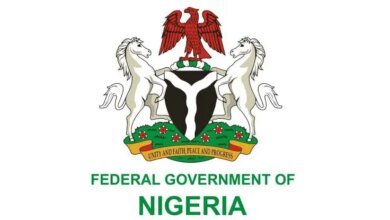A Turning Point: The Ghana Infrastructure Plan (GIP)

The recent launch of the Ghana Infrastructure Plan (GIP) in October 2025 by President John Dramani Mahama could mark a key moment of transformation. The GIP, a comprehensive 30-year strategic framework developed by the NDPC, aims to guide infrastructure investments until 2055.
This initiative offers a chance to address long-standing issues of inefficiency and mismanagement, provided that lessons from previous experiences are properly applied.
Under Articles 86 and 87 of the 1992 Constitution, the NDPC is tasked with developing short-, medium-, and long-term plans, overseeing implementation, and advising the President and Parliament on policy coordination. This ensures that national development transcends election cycles, guaranteeing continuity regardless of which political party holds power.
However, in practice, each new government tends to abandon existing frameworks, choosing instead to introduce new flagship projects aligned with party manifestos. As a result, previous plans — such as Vision 2020, the Ghana Poverty Reduction Strategy, and the Ghana Shared Growth and Development Agenda — have been repeatedly replaced or left incomplete, weakening policy continuity and accountability.
The Cost of Ignoring Institutional Planning
The financial repercussions of disregarding institutional planning have been severe. Each time a new administration discards a national plan, it forfeits investments made in research, consultancy, and development — not to mention the economic losses from abandoned or delayed projects.
Reports from the Auditor-General and parliamentary committees consistently highlight issues like wastefulness, project duplication, and underutilised infrastructure — from incomplete hospitals and roads to unimplemented digital systems.
Recent revelations of financial irregularities, such as the alleged GH¢600 million payroll and project fund misconduct at the National Service Authority, underscore how weak institutional planning and political interference can trigger major financial losses.
When public institutions operate outside a national framework, resources are allocated reactively rather than strategically, leading to duplication and inefficiencies. The NDPC’s marginalisation effectively removes the safeguards meant to prevent such mismanagement.
The Role of the GIP in Fiscal and Strategic Discipline
The Ghana Infrastructure Plan is not merely a blueprint — it is a financial safeguard and a national covenant. By anchoring infrastructure development within a cohesive long-term framework, Ghana can minimise waste, prevent duplication, and ensure that every cedi spent contributes to a unified national goal.
The GIP covers transportation, energy, housing, water, sanitation, ICT, and industrial zones, and is informed by population growth, urbanisation trends, and climate resilience data. It promotes spatial equity by addressing disparities between northern and southern Ghana while aligning with the UN Sustainable Development Goals (SDGs) and the African Union’s Agenda 2063.
At its launch, President Mahama stated that the GIP is not merely another government policy but a “national development covenant” — a living document meant to guide all administrations.
“We cannot afford the luxury of restarting every four years,” he said. “Continuity in planning is not a political favour; it is a financial necessity.”
What Must Change for the GIP to Succeed
For the Ghana Infrastructure Plan to succeed, several reforms are essential:
- Legal Enforcement of National Plans: Parliament must pass legislation making NDPC frameworks legally binding for future governments. Without this, compliance remains optional and politically fragile.
- Budget Alignment: All Ministries, Departments, and Agencies (MDAs) should be required to align project proposals with NDPC-approved frameworks. This ensures the national budget directly supports national priorities.
- Robust Monitoring and Evaluation: Ghana must implement transparent digital tracking and reporting tools to measure performance, reduce leakages, and eliminate “ghost projects.”
- Strengthening NDPC Capacity: The Commission must receive adequate funding, skilled technical staff, and independence to call out deviations from national plans without political intimidation.
The Infrastructure of Discipline
Ghana’s challenge is not a lack of ideas, but a lack of discipline in execution. Each year, billions of cedis are lost to uncoordinated, delayed, or abandoned projects. With high debt and limited fiscal space, this waste is both inefficient and unsustainable.
The GIP offers a path forward — one rooted in long-term strategic discipline rather than political slogans. If implemented faithfully, it could save billions and establish a culture of continuity.
However, the plan’s success depends on political commitment and institutional stability. Ghana cannot afford to rebuild its systems every four years. The costs — in wasted funds, missed opportunities, and public frustration — are too high.
The NDPC’s work reminds us that genuine development requires patience, coordination, and accountability. History has already shown that growth without structured planning is unsustainable.
If Ghana embraces the GIP as a national, non-partisan framework, the nation can finally move from rhetoric to results — from planning for politics to planning for posterity.
#GhanaDevelopment #InfrastructurePlan #NDPC #SustainableGrowth #PublicPolicy #GhanaNews #FiscalDiscipline #StrategicPlanning #Mahama #AfricanDevelopment
🔗 Follow Ghanaian Times WhatsApp Channel today. https://whatsapp.com/channel/0029VbAjG7g3gvWajUAEX12Q
🌍 Trusted News. Real Stories. Anytime, Anywhere.
✅ Join our WhatsApp Channel now! https://whatsapp.com/channel/0029VbAjG7g3gvWajUAEX12Q






